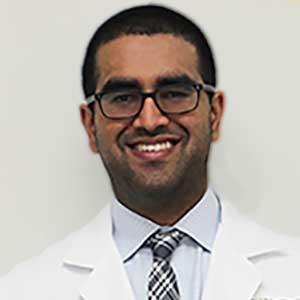Work-life balance. One of the most lauded concepts in current medicine and medical education, yet something that people regularly have difficulty describing. My name is Rahul Bijlani and I am a current PGY-4 resident in Physical Medicine and Rehabilitation. Throughout my progression in medicine from medical school to residency, I have seen the concept of work-life balance evolve. As a first- and second-year medical student, thought to be some of the most grueling years of the medical education process, work-life balance was not something which was discussed by neither our professors nor preceptors. This was not just isolated to work-life balance though but also to the close entwined concept of "wellness". During the latter years of medical school, a monthly "Therapy dog Tuesday" was instituted where we had a few hours in the afternoon to go and play with volunteer service dogs. Honestly, I made sure that I found myself on campus those days so that I could play for even a few moments with Champ the Golden Retriever. Not only did I get to envy the carefree life of being a Golden Retriever, but I also got to participate in an elective my fourth year where I got to learn guided meditation. Our school actually repurposed a room on campus as a "calm room" where you could go and meditate or simply enjoy the silence if desired.
The therapy dogs and the meditation are just a few examples of how formal relaxation measures were started targeted to medical students. Recently with the real-time access afforded to us with social media, society is more intimately aware of the taxing and often both physically and emotionally draining field which is medicine. A stranger can now be thrust into the anguish of an ER physician after a multi-trauma shift or into the desolate 16-hour plus days spent studying for boards of a second-year medical student. I feel that all these factors have led to medicine being more publicly discussed and better understood by society and that this has also placed a spotlight on the tension and sometimes burnout that is faced in the field.
From the emotional strain of regularly dealing with often life-altering diagnosis to long hours spent on call, those in medicine are presented to innumerable stressors which unfortunately led to some abandoning the field. I am pleased to say though that with the new more public awareness of these stressors has also come a desire to protect those in the field from the earliest stages. Many physicians take an oath to "first do no harm". This principle of bioethics does not delineate just patients and must extend to ourselves. If physicians and physicians in training do not care for themselves and their wellbeing, they cannot successfully fulfill their duty in caring for others. It is for this reason that I am a strong proponent of work-life balance.
As I said at the start, this is often a nebulous concept, but I feel that this is a good thing. It doesn't matter your specialty or where you are in your training, I would challenge everyone to find one or two things to do every week that they enjoy apart from medicine. To those in medical education continue to try and incorporate formal study free periods and activities away from clinical and pre-clinical activities and show that these are desired and that you won't be faulted for "not studying". Many of us for Residency are in new cities working with new people. Ask those that are local to where you are what are some new attractions and go exploring. I, myself, love the outdoors and spend time exploring the beautiful local botanical gardens or the famed St. Louis Forrest Park. I have tried to make it a point to visit one of these sites at least for an hour a week and this helps me decompress. It is often easier said than done to make time. I am aware that often we are on what may seem like endless inpatient rotations or constantly studying for test after test. It is during these periods that time seems to be most at a premium, but it is during these instances that care for oneself is most vital. Join a rec league, go to the movies, take your children to the zoo, whatever it may be, make an effort to take time out for yourself even if it is just a few stolen moments. In the end, you'll come out a better person and a better more balanced physician.

Dr. Rahul Bijlani — Former chief resident of physical medicine & rehabilitation at Washington University in St. Louis.